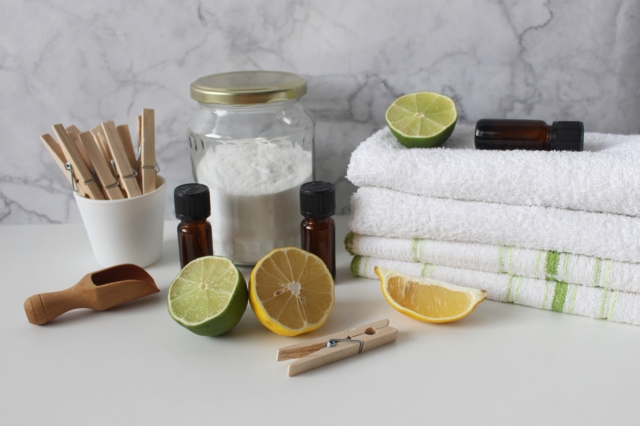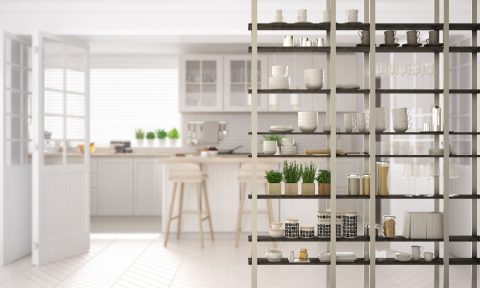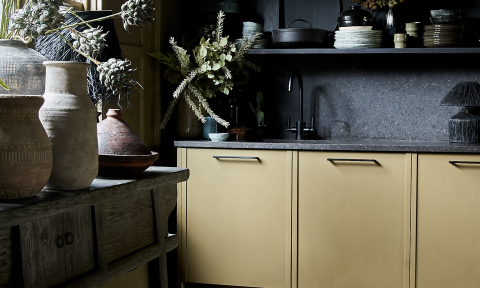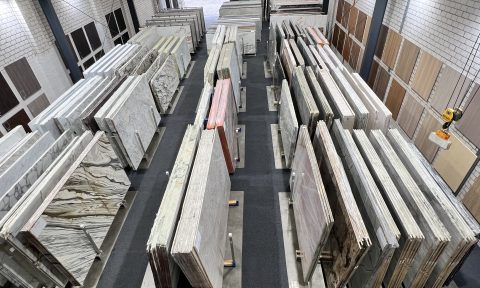Emily Hruska from Fire Lotus Feng Shui takes us through some of the basic principals of Feng Shui we can try for ourselves
Whenever we look into the potential Feng Shui of any given building, there are quite a number of different theoretical approaches that we can take. These theories come from the many different ‘schools’ of Feng Shui whose origins date back as many as 5,000 years. Some of them are incredibly involved, and some of them lessso, but all have their merits and most appropriate uses.

Feng Shui is an intriguing field that combines an understanding of metaphysics, science, mathematics and art, and involves the use of equipment and skills such as compasses, electromagnetic field readers, dowsing rods, interior design and intuition.
When working on a consultation, I will always consider all of the different methods that can be employed to assess and improve the energy within a home or building. However, I strongly believe that despite how many advanced methods are put in place, unless the fundamentals of Feng Shui are addressed first, then the advantages of the most powerful techniques are always going to be less effective.
At the absolute, most basic level of Feng Shui we are looking to increase the presence of positive energy within a home and to diminish the level of negative energy. The energy that we refer to in Feng Shui is known as ‘Qi’ (sometimes also spelled ‘Chi’). This is what the Chinese call life-force energy. It permeates all of existence and affects everything within our environment – including us.
There are many other cultures around the world that have their own word for this vital life-force energy, including Indians who know it as ‘Prana’, Japanese who call it ‘Ki’, Polynesians – who refer to it as ‘Mana’, Ancient Eqyptians who named it ‘Ka’, and the Australian Aborigines who refer to it as ‘Maban’.
In Feng Shui terms, the energies can broadly be categorised as either ‘Sheng Qi’ – beneficial energy; or ‘Sha Qi’ – harmful energy. There are many ways we can locate and assess these energies, including–as mentioned previously–compasses, dowsing rods, mathematical formulas and intuition, however, I believe that the very best and most effective ways to recognise both beneficial and harmful energies is to engage the senses.
So, when you move through your home (or office), what are your senses telling you? If we focus on one sense at a time and mindfully assess all aspects of our immediate environment, then you will find that it’s quite easy to identify a lot of the sources of both positive and negative energies.

Firstly, sight. What do you see as you look around your environment? Is it beautiful? Does it inspire you? Or are there areas that are less than attractive that bring you down? Is it clean and well maintained – or is it messy and are there things that need your attention for improvement?
Is your home filled with beautiful objects and art and colours that make you happy? Or is it cluttered with unnecessary things, old unattractive objects and decorated in drab colours that are depressing? Are there lush, healthy indoor plants throughout your home that contribute beautiful energy or is there a vase of sad looking, half-dead flowers on the kitchen bench that should have been thrown out last week?
It is really important to understand just how much all of these things will actually affect the way we feel both on a conscious and an unconscious level.
From here you should also employ your other senses–especially smell and touch–to assess the quality of your environment. How do different areas of your home smell? Are the laundry and kitchen and bathroom fresh and hygienic? When you feel the surfaces of your home are they beautiful, clean and inviting to touch?
Keeping your home’s surfaces clean and making your home smell beautiful are easy ways to increase the Sheng Qi in your life. Scented candles, diffusers and oils work well to mask unattractive odours, but keeping things clean and fresh in the first place is even better. Invest in good exhaust fans and a laundry hamper with a lid and open your windows to let in the beautiful, beneficial fresh air to work its magic as often as possible.
Sound can also play an important part in how we feel about our environment. Do you have noisy neighbours, live near a busy road or train line or have squeaky doors or floorboards? Any noise that is unpleasant can be considered Sha Qi and will affect a person to some degree over time. It is important to address anything that can be improved, and to add pleasant sounds like windchimes and beautiful music to your environment wherever possible.
Obviously, the more inviting and pleasant that our environment is, the more relaxed and happy we will feel on a day-to-day basis. Taking steps to ensure that we experience beautiful, beneficial energy whenever we are in our homes helps us to lead happier, healthier lives – and this is ultimately what Feng Shui is all about.









